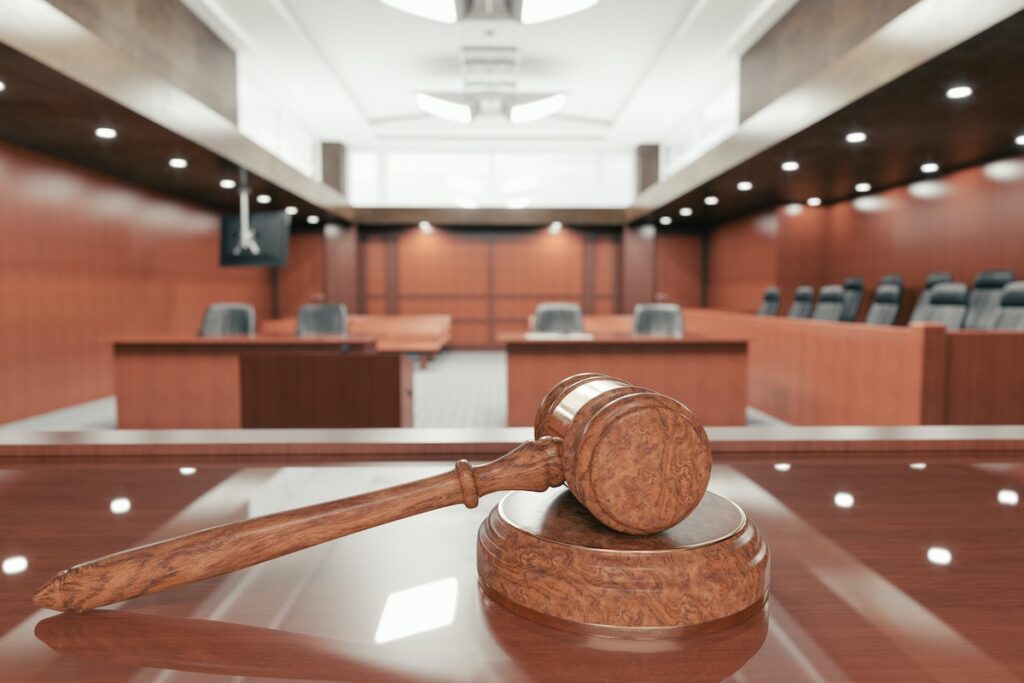In the heart of Nashville, the judicial hammer stands poised to fall on a group of six avid pro-lifers, the potential repercussions of their actions echoing across the nation. Faced with allegations leveled by the Department of Justice (DOJ) of conspiring against rights and violating the Freedom of Access to Clinic Entrances (FACE) Act, the fate of these six rests in the hands of a jury, their charges heralding a potential 11-year stint in prison. Underscoring the severity of their charges is their peaceful demonstration in the hallway outside a Mount Juliet abortion provider in March 2021, a protest which now triggers massive legal repercussions and, potentially, a shift in the narrative surrounding pro-life activism.
Amidst a tense atmosphere on the fourth day of trial, closing arguments echoed through the Fred D. Thompson federal courthouse. Identified as Chet Gallagher, Coleman Boyd, Heather Idoni, Cal Zastrow, Paul Vaughn, and Dennis Green, these pro-lifers were collectively unified in their mission for rescuing unborn lives. The defense emphasized the absence of any perceived threat or intimidation on their part during the peaceful protest at Carafem Health Center Clinic. Counter to the DOJ’s narrative of oppression, attorneys for the defense posited a storyline of a directionalized protest aimed at saving lives, consistent with their fiercely-held religious beliefs.
“Lives were at stake,” stated Steve Crampton, a defense lawyer, poignantly defining the intense determination of the pro-life group. His argument struck down the government’s claim of inherent intimidation due to crowd presence, a sentiment echoed by many who believe this interpretation could potentially infringe the right to assembly.
The defense, however, didn’t leave unchallenged the testimony of Caroline Davis, a previously arrested protester who had struck a plea bargain and agreed to testify for the government. The defense highlighted the substantial differences in her demeanor depending on who was questioning her, implying inconsistencies that could call the validity of her testimony into question.
Countering the defense, Assistant U.S. Attorney Amanda Klopf drew a parallel between disrupting voting procedures and blocking access to the clinic, stating the alleged violation of law negated any claim to peacefulness.
The full weight of its gravity reflected in the hundreds of eyes present, including many hailing from Michigan, Mississippi, and various parts of Tennessee, this trial underscores a significant battle between government regulation and individual rights of assembly and expression.
As we await the jury’s decision, the compelling narratives presented within this trial bare the stark divide and disparities in interpretation of rights, obligations, and freedoms within the US judicial system. In one fell swoop, this verdict could potentially redefine the confines of peaceful protest, altering how the government and society view the activism encompassing deeply held beliefs. These pro-lifers’ peaceful demonstration of faith and conviction has dramatized into a judicial entity capable of sending ripples of change across the nation. Regardless of the verdict, it’ll mark a landmark moment in the realms of human rights, freedom of speech, assembly and religion; a reminder that every voice, however sternly silenced or amplified, echoes within the courtroom, and, indeed, throughout the nation. As the jury deliberates, America watches, the consequences of its verdict poised to impact far beyond the courtroom walls.



